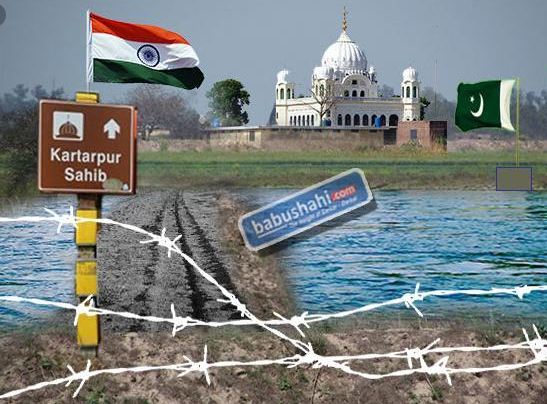Virendra Pandit
New Delhi: After watching attempts to woo the Indian Sikhs to the “Khalistani” project failing, Pakistan has, for the first time, handed over the management of the famous Sikh-Hindu shrine at Gurudwara Kartarpur Sahib to a body of Muslims, in what might be a precursor to its fate like that of Hagia Sophia, the church-turned-mosque-turned-museum reconverted into a mosque in Turkey in September.
In the last couple of years, Pakistan and Turkey have come closer than ever and following policies in tandem. In December 2019, they even tried to set up a separate, non-Arab group within the Saudi Arabia-led group of 57 countries, the Organization of Islamic Cooperation (OIC), a move torpedoed by Riyadh.
Also, Pakistan is the only other Muslim country, which, in a bid to fire up Islamist frenzy, televised all 448 episodes in four seasons of Turkish teleserial Dirilis: Ertugrul (Resurrection: Ertugrul) about the founders of the Ottoman Empire, which Ankara is currently trying to revive after a century of its demise in 1922.
It is in this Turk0-Pakistani bonhomie and context that the Kartarpur issue has emerged as a potential flashpoint.
Islamabad’s Ministry of Religious Affairs has taken over control of the Kartarpur shrine from the Pakistan Sikh Gurudwara Prabandhak Committee (PSGPC), and handed it over to Evacuee Trust Property Board (ETPB), ahead of the first anniversary of its reopening on November 9.
India’s Ministry of External Affairs (MEA) described as “highly condemnable” Pakistan’s decision to transfer the management of Gurudwara Kartarpur Sahib from a Sikh body to a separate trust, saying it runs against the religious sentiments of the Sikh community.
It said India had received representations from the Sikh community expressing grave concern over the decision to transfer the management and maintenance of the Gurudwara from the PSGPC to the administrative control of a non-Sikh body.
In November 2019, the two countries had thrown open a corridor linking Dera Baba Sahib in Gurdaspur in India with Gurdwara Kartarpur Sahib in Pakistan, a distance of nearly 4 km across the Ravi River in Narowal district, in a historic people-to-people initiative. The step was taken as part of celebrations to mark the 550th birth anniversary of Guru Nanak Dev, founder of Sikhism.
“This unilateral decision by Pakistan is highly condemnable and runs against the spirit of the Kartarpur Sahib Corridor as also the religious sentiments of the Sikh community at large,” it said, adding the community had expressed grave concern over “targeting the rights” of the minority community in Pakistan.
“Such actions only expose the reality of the Pakistani government and its leadership’s tall claims of preserving and protecting the rights and welfare of the religious minority communities,” the MEA said.
“Pakistan is called upon to reverse its arbitrary decision to deprive the Sikh minority community its right to manage affairs of the Holy Gurudwara Kartarpur Sahib,” it said.
The famous Gurudwara was built at the final resting place of Guru Nanak Dev, who had spent the last 18 years of his life in Kartarpur.
Meanwhile, Shiromani Akali Dal (SAD) President Sukhbir Singh Badal urged Prime Minister Narendra Modi to take up the issue with Pakistan to ensure restoration of status quo.
“The Pakistan government’s decision to establish a project management unit consisting of non-Sikhs has hurt the sentiments of the Sikh community worldwide,” he said in a statement.
“This is also against the “maryada” (code of conduct) associated with Sikh shrines,” Badal said.
He said the Sikh community views this decision as a direct attack on the religious rights of its members in Punjab.
Badal also dismissed the Pakistan government’s claim that this decision was needed to rake in financial returns from the “project”.
He said the Kartarpur Sahib gurdwara and the land adjoining it, which was tilled by Shri Guru Nanak Dev, are revered by millions as a sacred pilgrimage site.

